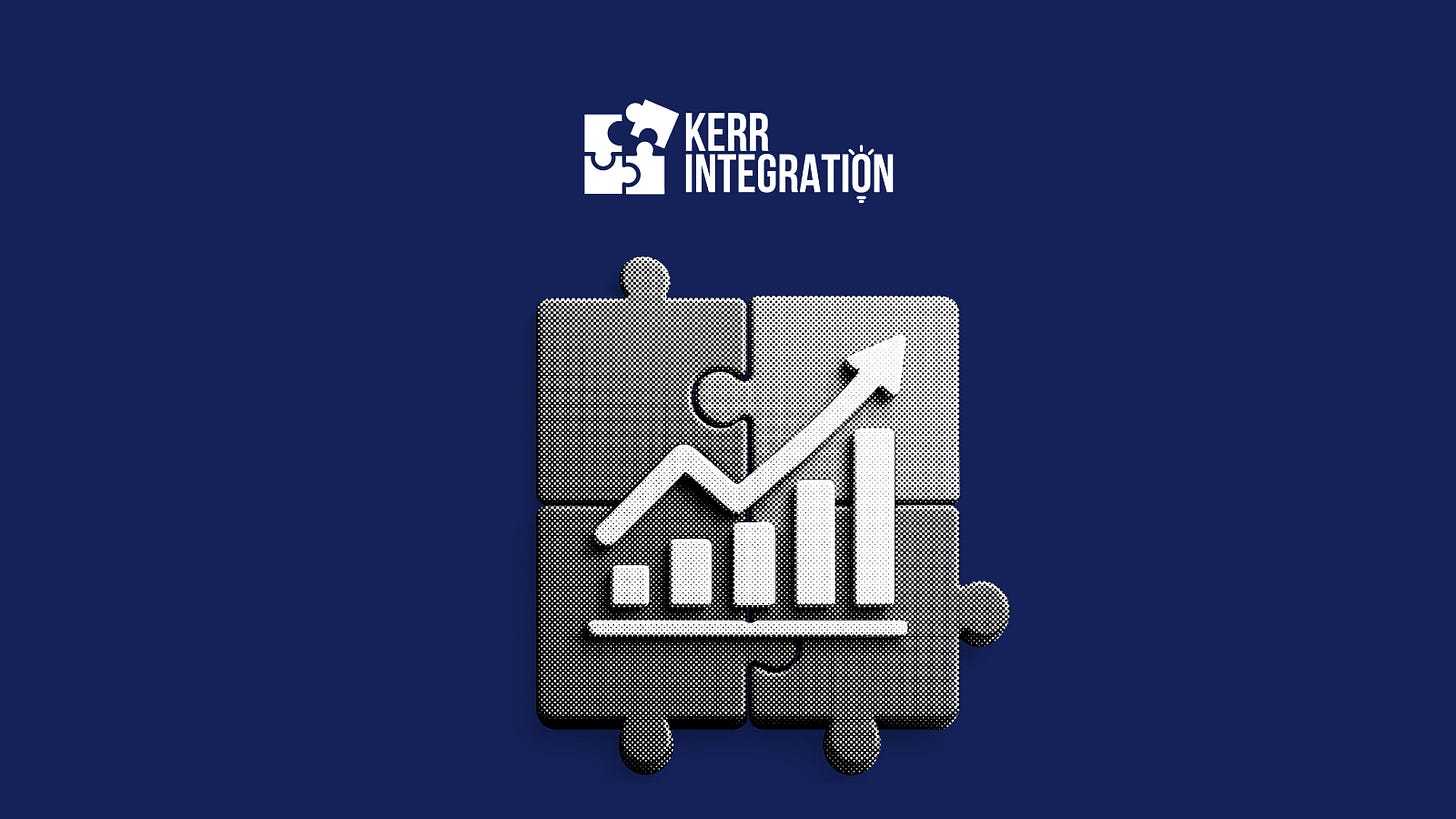Why Post-Merger Integration (PMI) Matters to Chartered Accountants
By Rob Kerr, M&A Integration Navigator at Kerr Integration
Many Chartered Accountants are deeply familiar with the mechanics of M&A - valuations, due diligence, deal structuring. But far fewer are involved in what follows: the messy, often underestimated reality of Post-Merger Integration (PMI). And yet, that’s where deals either deliver on their promise or quietly unravel.
PMI is where value is made real.
For finance professionals, it’s not just about aligning systems or closing books. It’s about providing visibility, control, and insight in a period of rapid change. Unifying financial reporting, restructuring tax and treasury, confirming internal controls. All of this happens under the pressures of business continuity and shifting leadership expectations. Chartered Accountants are uniquely equipped to bring order to this uncertainty.
But integration is more than just a technical exercise. It’s a leadership challenge. It demands clarity on ownership, speed in decision-making, and trust across newly joined teams. And often, it starts without a map.
One common pitfall is the disconnect between the deal team and those left to deliver the integration. Commercial logic, synergy assumptions, even critical risks often sit in the heads - or spreadsheets - of the deal architects. But by the time the ink is dry, those individuals may have moved on. If finance leaders aren’t brought into those conversations early, the knowledge gap becomes a risk in itself.
The same goes for synergy ownership. Who is responsible for delivering the numbers? How are targets set, tracked, and adapted? Too often, the focus is on signing the deal rather than on ensuring the business is equipped to realise its full potential afterwards.
That’s where finance should step in. Not just to monitor, but to lead. The best CFOs I’ve worked with take a hands-on role in shaping integration strategy. They ask sharp questions early. They bring structure to unstructured handovers. And they don’t wait to be invited. They show up.
Even for those who aren’t directly involved in integration, the role of PMI still matters. Advisors, auditors, and deal teams have a duty of care to raise the question: what happens next? Helping clients think ahead to integration, ideally before the deal closes, is not just smart. It protects long-term value and avoids costly surprises later.
In a world where M&A activity continues to rise, and where many deals involve fast-growing, cross-border businesses, the ability to navigate post-deal complexity is becoming a strategic advantage.
So whether you're inside the acquiring business, part of the team being acquired, or advising from the outside, don’t let integration be an afterthought.
Because in M&A, it’s not the transaction that delivers the value.
It’s what comes after.
Explore Kerr Integration’s website to discover how we help turn post-deal complexity into clarity and control.
.




